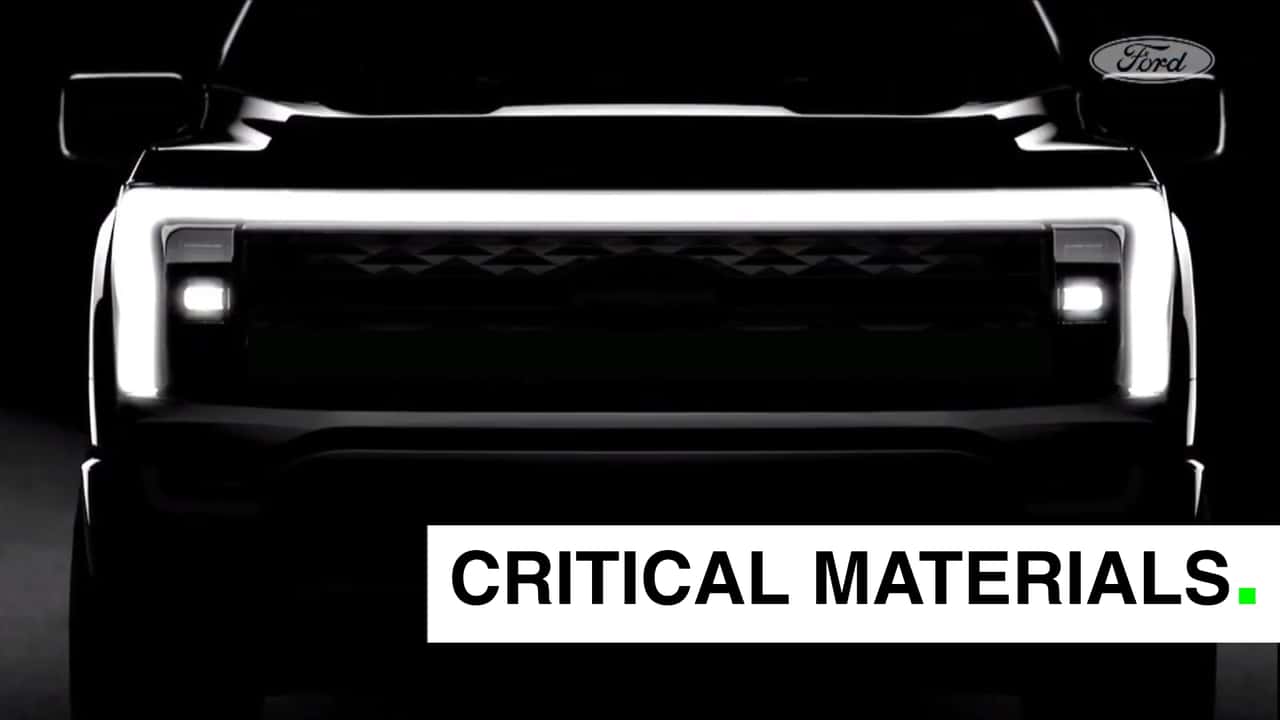Welcome back to Critical Materials, your daily roundup of EV and automotive tech news that actually matters. Today, we're still discovering new details from this year's CES 2024 event in Las Vegas, and the automakers who are here have a lot to announce.
Today we dive into Ford's potential future modular BEV platform, examine how Stellatis has figured out how to shave literal months off its software development time and take a look at BMW's fancy new augmented reality glasses. All this and more on today's Critical Materials.
30%: Ford patents an Ultium-like modular battery platform

A new patent filed by Ford could give us a look into its upcoming electric vehicle platform ahead of its launch.
Originally filed in 2021, the newly published patent (discovered by Road & Track recently) shows off a skateboard-like design with multiple configuration options—similar to General Motors' Ultium platform. The front and rear subframe assemblies appear to be interchangeable.
Ford describes it as a “vehicle chassis with interchangeable performance packages and related methods," which is a fancy way of saying that its design would likely make it possible to configure the platform with multiple suspension and powertrain components from the factory without a lot of massive amount of re-engineering from vehicle to vehicle.
That could potentially mean—in theory—that the same platform could be used for a passenger car or small truck in either a single motor, dual motor, or performance setup with minimal changes. In short: it's modular.
We've known for some time that EVs like the Mustang Mach-E and F-150 Lightning, impressive as they may be, do not represent the more dedicated from-the-ground-up electrics Ford wants to build eventually. The automaker has said it needs to do that to get costs down, get range and efficiency up and build up a software ecosystem that can serve the entire car for years to come.
The details of exactly what vehicle could (or potentially will) be build using technology from the patent is truly a shot in the dark. Ford CEO Jim Farley has said that the automaker's next-generation EVs would be "easier to assemble," so it's not out of line to suggest that Ford might be using a modular platform to accomplish exactly that.
90%: Stellantis, BlackBerry, and Amazon Have Figured Out How to Build a Digital Cockpit in the Cloud

Stellantis says that it's collaborating with Blackberry to build out tech which will help it to cut development costs and deliver software-based infotainment technology much more quickly.
Specifically, the duo is working on a "virtual cockpit" that can simulate vehicle controls and systems in the cloud rather than bench testing or using a physical vehicle. The tools can also simulate audio, graphics, and user input in real-time.
Yves Bonnefont, Stellantis' Chief Software Officer, says that this will immensely speed up the brand's software development process.
Essentially, we’re able to get closer to our customers’ needs through this technology with faster development cycles, faster feedback loops, and quicker delivery of the technology they know and love.
The automaker believes that this tech will help it potentially cut down from "several months" of production and development time to, in some cases, just 24 hours.
Blackberry's role is its QNX Hypervisor software stack, which allows multiple operating systems to live on a single piece of hardware. The software will then live in Amazon's cloud services, allowing the development to be stood up anywhere in the world, virtually.
90%: Would you try BMW's new augmented reality... driving glasses?
BMW's big reveal at CES is a set of wearable driving glasses. No, really.
The automaker collaborated with Xreal to build out a new augmented reality experience for its cars using Xreal's Air 2 glasses. Basically, a set of Sony's micro-OLED displays sit inside a set of spectacles and interface with BMW's vehicle. It can then display things like maps, navigation states of charge, a virtual assistant, and other various features in mixed reality.
It's kind of like a wearable, full-color Head-Up Display. Pretty cool, if you ask me, and with more and more AR gadgets hitting the tech scene like the new Apple Vision Pro, it's only a matter of time before wearables are the next big thing. So would you use a pair of these glasses in your next car?
100%: Does a car's platform matter much to you?
How important is this when you're buying a vehicle? We have talked to some who will only get dedicated EV-platform cars if they can. Is that a dealbreaker, or do specs matter most?

